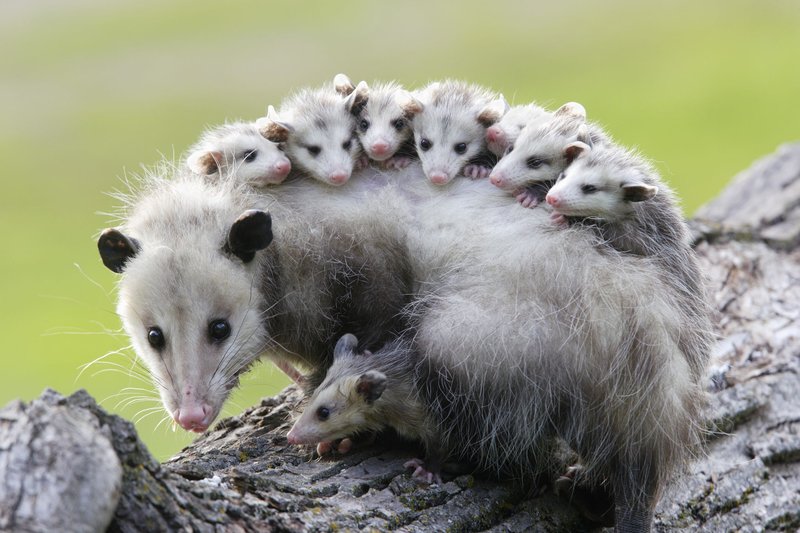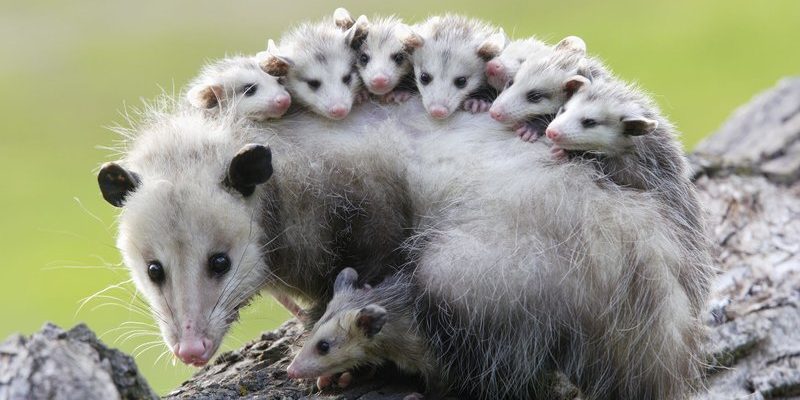
So, let’s dive into the fascinating world of possums. Think of them as the unsung heroes of their environment. They might not have a cape, but they do have a spectacular knack for keeping things in balance. In this article, we’ll explore how possums contribute to their ecosystems, helping other animals, plants, and even humans along the way. You might be surprised by just how integral these little guys are to the health of our planet.
What Exactly Is a Possum?
Possums are often mistaken for other marsupials like opossums, but let’s clear that up right away. While the term “possum” can refer to several marsupial species, the most commonly known in the U.S. is the Virginia opossum. These critters are distinguishable by their long snouts, prehensile tails, and, let’s be honest, their adorable little faces. But they’re not just charming; they’re incredibly interesting too!
Possums have a nocturnal lifestyle, which means they’re mostly active at night. This can make them seem elusive, but it’s all part of their survival strategy. They roam around searching for food—like insects, fruits, and even small rodents. And they’re not picky eaters either! Their ability to thrive on various food sources makes them key players in their habitats.
The Clean-Up Crew: How Possums Help Control Pests
One of the possum’s most essential roles in the ecosystem is as a natural pest controller. You might be wondering why this matters. Here’s the thing: by feeding on insects, ticks, and even dead animals, possums help keep these populations in check.
– Tick Control: Did you know that a single possum can eat over 5,000 ticks in one season? That’s huge, especially considering the diseases ticks can carry. Their tick-munching habits significantly reduce the chances of Lyme disease spreading in their habitats.
– Decomposers: Possums also feast on dead animals, which is a pretty grizzly job but an important one. By consuming carrion, they help speed up the decomposition process, returning nutrients back to the soil, which promotes healthy plant growth.
So, if you ever see a possum in your backyard, think of it as a tiny guardian protecting you and your garden from all those diseases and pests!
Possums and Soil Health
Let’s talk more about how possums contribute to soil health. As possums eat a variety of foods, they not only help control pest populations but also aid in the nutrient cycle. When they consume food and excrete waste, they’re essentially fertilizing the ground.
Possum droppings are rich in nutrients that plants need to grow. This is crucial for maintaining healthy vegetation, which in turn supports other wildlife. Healthy soil leads to robust plant life, which provides food and shelter for countless other species.
In a way, by just being themselves, possums are supporting entire ecosystems. It’s an impressive chain reaction that starts with these little guys!
Possums and Their Role in Biodiversity
Biodiversity is vital for a healthy ecosystem, and possums contribute to this in various ways. By foraging for different types of food, they help disperse seeds. For example, when possums eat fruits, they often drop seeds as they move around. This movement aids in plant reproduction and contributes to genetic diversity among plant species.
The more diverse a habitat is, the more resilient it is against diseases and changes in climate. Possums, by promoting this diversity, help create a balanced environment where numerous species can thrive. So, while they may seem small, their impacts are mighty!
The Possum’s Unique Defense Mechanisms
Possums are well-known for their unusual defense strategy—playing dead. When faced with danger, they can collapse and mimic the appearance of a sick or dying animal. This behavior can discourage predators, providing them a chance to escape when the threat has passed.
But that’s not all! Possums also have a thick fur coat that helps protect them from the bites of other animals while they scavenge. Their low metabolic rate allows them to survive on low energy, which is valuable when food gets scarce. Simply put, possums have evolved some clever tricks up their sleeves to survive in the wild.
Why Should We Care About Possums?
You might still be pondering, “Why should I care about possums?” Here’s the thing: understanding the role of possums in our ecosystems helps us appreciate the complexity of nature. Each creature, no matter how small, has its part to play.
In urban areas, possums provide invaluable services, such as keeping pest populations down without the need for chemical pesticides. By maintaining their habitats, we support not only possums but also the balance of our local ecosystems. Protecting these marsupials means protecting the health of our environment—something that benefits us all.
How to Coexist with Possums
If you’re lucky enough to have possums around, there are simple steps you can take to coexist peacefully. Here are a few tips:
- Secure Your Trash: Make sure your garbage bins are tightly sealed to avoid attracting possums.
- Provide Shelter: If you don’t mind their presence, consider leaving a space for them to nest. They prefer quiet, hidden areas.
- Avoid Traps: It’s best to let them be. Trapping them can disrupt their role in the ecosystem.
By taking these simple measures, you can help support the possum population and, in return, benefit from their services!
Possums might not have the flashy appeal of other wildlife, but their roles in the ecosystem are incredibly important. From pest control to supporting soil health and biodiversity, these little creatures carry more weight than you might expect.
So, the next time you spot a possum, remember that you’re witnessing an essential part of nature’s intricate web. By caring for them, we’re not just helping the possums; we’re also investing in the overall health of our planet. Let’s celebrate these nocturnal heroes and the crucial contributions they make each night!

